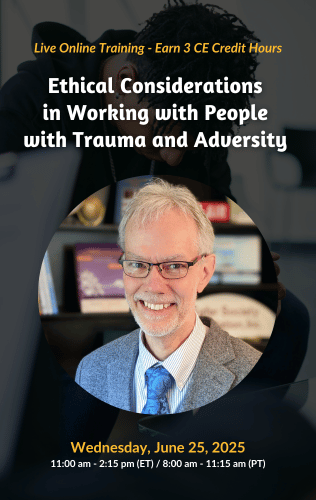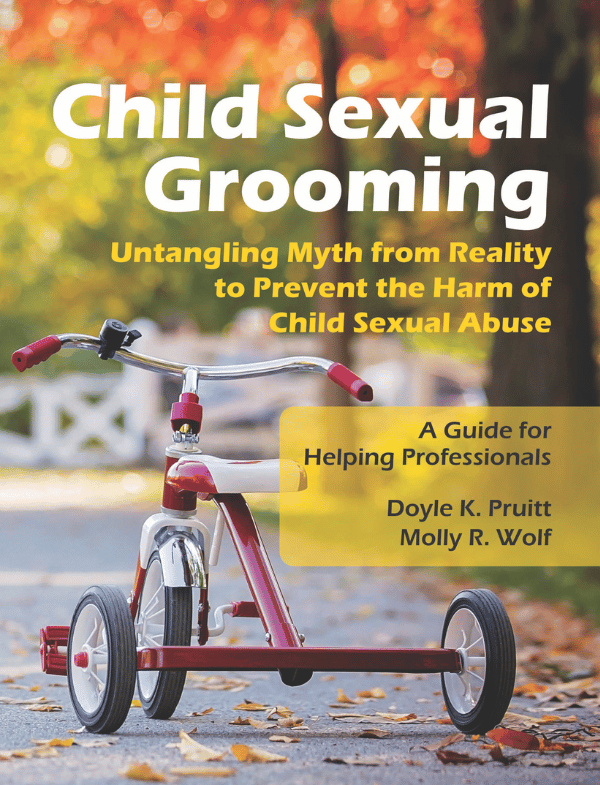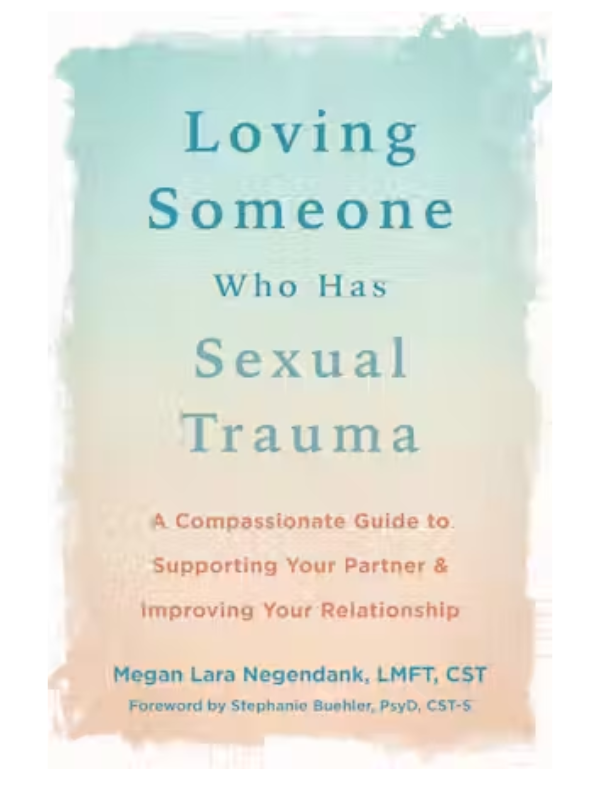Home / Shop / Online Trainings / Trainings
Live Online Training - Ethical Considerations in Working with People with Trauma and Adversity

- Description
Date: June 25, 2025
Time: 11:00 am – 2:15 pm ET /
8:00 am – 11:15 am PT
Format: Live interactive training offered via Zoom
Presented by: David Prescott, LICSW, ATSA-F (See Bio)
You must attend the entire live training and complete an evaluation to be eligible for CE credits. If you seek only psychology credits, the evaluation is optional, and you can remain anonymous.
Online Training Description:

A surge in research in the past two decades has revealed that the effects of early life adversity and other forms of trauma across all age groups, including those involved in the criminal justice system, is a complex landscape in need of better understanding by treatment providers. A growing body of evidence highlights a potential disconnect between therapists' intentions to provide trauma-informed care and clients' experiences in treatment. Concepts such as "post-conviction traumatic stress," introduced by Danielle Harris and Jill Levenson, underscores the challenges faced by both practitioners and clients.
This training begins by examining this evidence and its implications for effective treatment. Presenter David Prescott then delves into the common ethical challenges encountered when treating individuals who have experienced and those who perpetrated harm. Mr. Prescott provides a framework for resolving such dilemmas, with a particular emphasis on the critical role of maintaining professional boundaries and upholding ethical standards in clinical practice.
Ultimately, this training aims to enhance participants’ capacity to navigate the ethical considerations inherent in treating individuals impacted by early adversity.
As a result of this training, participants will be able to:
1) Explain the connection between past adverse experiences and re-offense risk.
2) Integrate strategies into treatment to ensure ethical practice and enhance client engagement.
3) Identify and describe common ethical dilemmas in working with individuals who have both harmed others and experienced harm themselves.
4) Summarize ethical dilemmas that commonly arise in professional practice, particularly with clients who have abused others and who have been abused.
5) Apply well-established protocols for resolving ethical dilemmas.
Interactive Follow-Up Meeting
Attendees are invited to join an open discussion 15 minutes following the end of the training, where you can engage with fellow attendees by turning on your camera and microphone. This is an opportunity to share your experiences and contribute to a meaningful exchange of ideas. Time will be allocated to address questions or insights from the training. Please note that attendance is optional and will not affect your eligibility for a training certificate.
We can refund your training fee up to 24 hours prior to the start of the training.
To view all training details and review our list of frequently asked questions, please click here to visit the promotional page.




